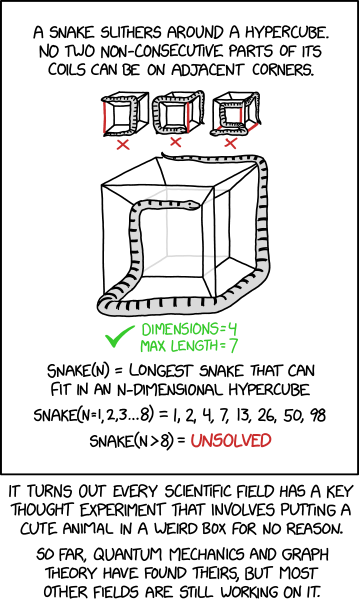this post was submitted on 06 Aug 2025
488 points (99.2% liked)
xkcd
13354 readers
411 users here now
A community for a webcomic of romance, sarcasm, math, and language.
founded 2 years ago
MODERATORS
you are viewing a single comment's thread
view the rest of the comments
view the rest of the comments

I'd expect something around ~200 for n=9 and ~400 for n=10, but I imagine this is too big to be brute forced by raw computing
Some lower bounds have been established: https://oeis.org/A099155
Wow, it already lists the xkcd in the links section. I have a feeling that snake is gonna bite its tail soon.
I'd think that it's not "too much to be brute forced", but probably no one has thrown enough resources at that recently
With each additional dimension, the amount of possible combinations grows exponentially. Without serious optimization efforts, computation requirements get prohibitive very, very fast
Some trivial bounds: F(n-1) + 1 <= F(n) <= F(n-1) * 2 + 1.
Also F(n) <= 2^(n-1)